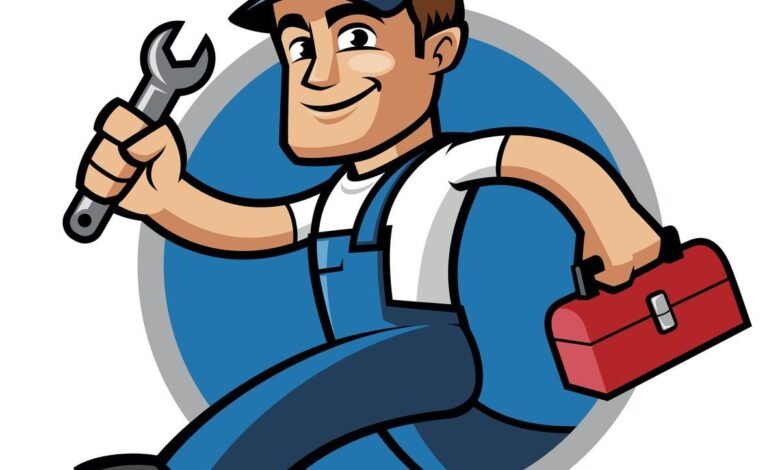Essential Guide to Emergency Plumbing Services
Discover the ins and outs of emergency plumbing services. Learn how to identify issues, when to call a plumber, and tips for prevention to keep your home safe and dry.

Plumbing issues can arise unexpectedly, and when they do, the stakes often feel high. A burst pipe or a backed-up toilet can create chaos in your home. Understanding emergency plumbing services helps you respond quickly and effectively. In this guide, we’ll explore common plumbing emergencies, how to handle them, and tips for prevention.
What Constitutes an Emergency Plumbing Situation?
Recognizing the Signs
Not every plumbing issue qualifies as an emergency, but some situations demand immediate attention. Let’s take a closer look at what constitutes an emergency.
Common Emergency Scenarios
- Burst Pipes: A sudden burst can lead to significant water damage. When you notice water gushing, turn off your main supply immediately and call for help.
- Severe Leaks: If you spot a leak that creates puddles or drips heavily, it can escalate quickly. Don’t wait; call a plumber to mitigate potential damage.
- Blocked Drains: While a minor blockage might be tolerable, severe clogs can lead to sewage backups, which pose health risks. Don’t hesitate to reach out for emergency services.
- Overflowing Toilets: An overflowing toilet can become a messy situation fast. Act quickly to stop the flow and contact a professional.
- Water Heater Issues: If your water heater leaks or stops working altogether, you need prompt attention. Hot water can be essential for daily routines.
When to Call for Help
Understanding when to call a plumber is crucial. Not all issues require a professional immediately, but some definitely do.
Immediate Action Required
- Visible Damage: If you see water damage on walls or ceilings, act quickly. Moisture can lead to mold, which can impact your health.
- Unpleasant Odors: Foul smells often indicate sewage issues. This situation demands urgent attention to avoid potential hazards.
- Strange Noises: Unusual sounds from your plumbing system might signal underlying problems. If you hear banging or gurgling, it’s wise to call a plumber.
How to Handle Plumbing Emergencies
Initial Steps to Take
When a plumbing crisis strikes, staying calm helps you manage the situation effectively. Follow these steps to minimize damage.
Shut Off Water Supply
First and foremost, locate your main water shut-off valve. Turning it off can prevent further flooding. If you’re unsure where it is, make a note to find it when things are calm.
Clear the Area
Next, remove any items that might get damaged. Towels, furniture, and electronics should be moved to a safe location. Taking these steps reduces the overall damage.
Document the Situation
Take photos of the problem area before any repairs begin. This documentation can be valuable for insurance claims later.
Temporary Fixes
While waiting for a professional, consider implementing some temporary fixes.
Use Plumbing Tape
For minor leaks, plumbing tape can provide a short-term solution. Wrap it tightly around the leak to help slow the flow until help arrives.
Utilize Buckets and Towels
If you’re dealing with a leak, place buckets under dripping areas. Use towels to soak up excess water. These measures can help contain the mess.
Choosing the Right Emergency Plumbing Service
What to Look For
When you need to call in the pros, choosing the right service makes all the difference. Here’s what to consider.
License and Insurance
Always ensure the plumbing service you choose is licensed and insured. This verification protects you in case of any mishaps during the repair process.
Experience Matters
Opt for a service with a proven track record. Experienced plumbers can identify problems quickly and provide effective solutions.
H3: 24/7 Availability
Plumbing emergencies don’t follow a schedule. Look for services that offer 24/7 availability. This access ensures you get help whenever you need it.
Preventing Plumbing Emergencies
Proactive Measures
Preventing emergencies is always better than dealing with them. Here are some tips to keep your plumbing in top shape.
Regular Maintenance
Schedule routine plumbing inspections. Regular check-ups help identify potential issues before they escalate into emergencies.
Know Your Plumbing System
Familiarize yourself with your home’s plumbing layout. Understanding where the shut-off valves and drains are can save you time during an emergency.
Don’t Overload Your Drains
Be mindful of what you put down your drains. Avoid flushing anything other than toilet paper and human waste. Grease, food particles, and feminine products can lead to clogs.
What to Expect from an Emergency Plumbing Service
The Process Explained
Once you contact an emergency plumbing service, what can you expect? Understanding the process helps you feel more prepared.
Initial Assessment
A plumber will arrive and conduct an initial assessment. They’ll ask questions about the problem and inspect the affected area.
Detailed Explanation
After diagnosing the issue, the plumber will explain the situation and outline the steps needed for repair. This transparency helps you understand what’s going on.
Repair and Follow-Up
Once you approve the plan, the plumber will perform the necessary repairs. Afterward, they might offer tips on maintaining your plumbing system to prevent future emergencies.
Conclusion
Dealing with plumbing emergencies can be stressful, but knowing what to do makes the process smoother. Recognize the signs of an emergency, take swift action, and choose the right plumbing service for help. Additionally, remember that preventive measures can save you from future headaches. With the right knowledge and preparation, you can keep your home safe, dry, and plumbing problem-free.
See more:
https://cakeglory.com/the-essential-guide-to-choosing-the-right-plumbing-services-company/
